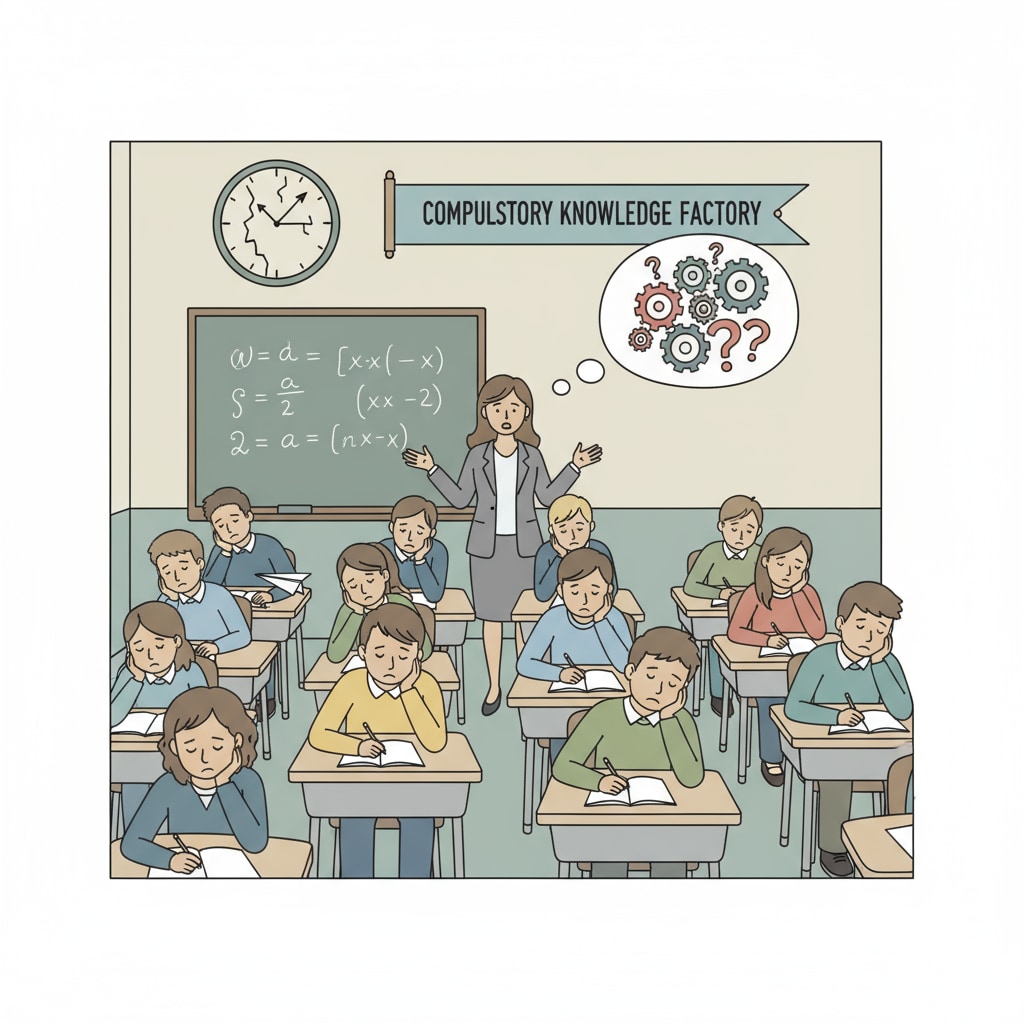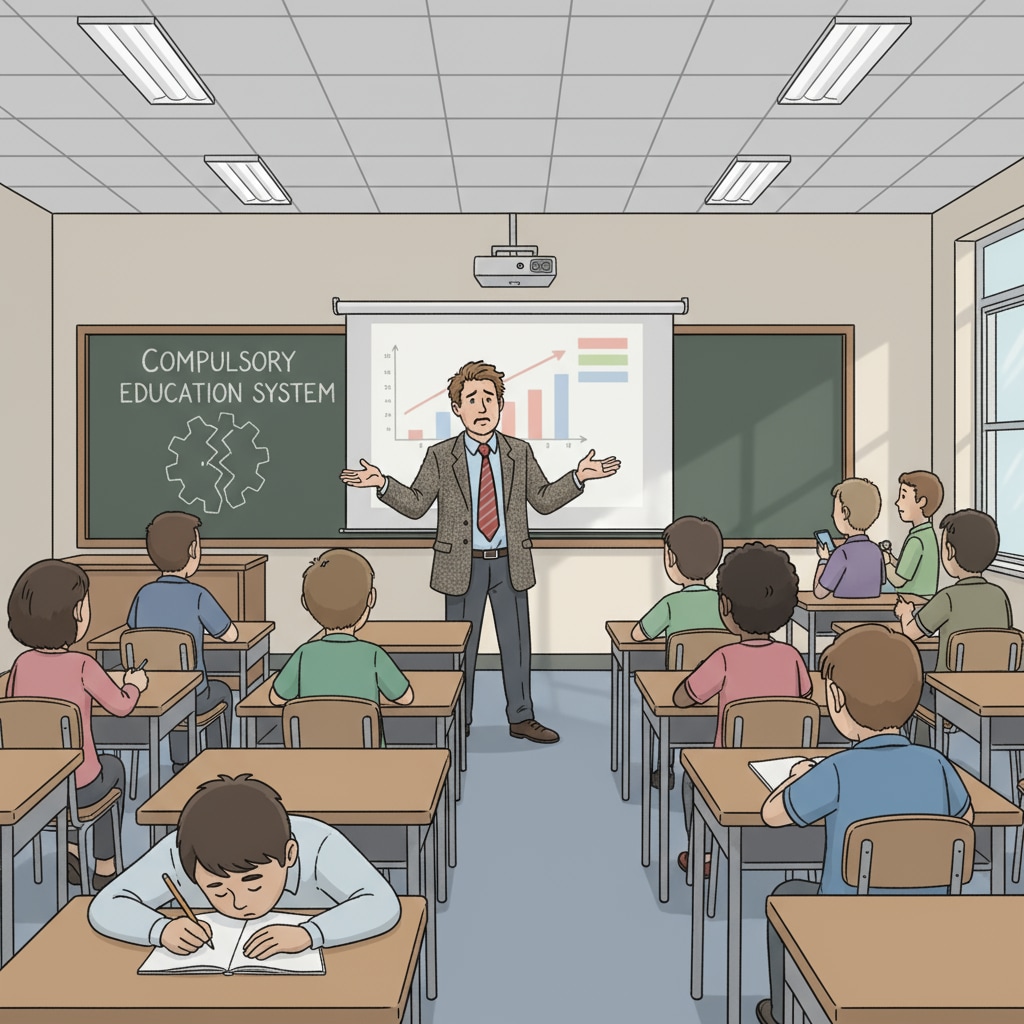The issues of compulsory learning, school systems, and educational problems are at the forefront of modern education discussions. In today’s K12 education system, there exists a fundamental contradiction: while we cannot truly compel students to learn, we have built an educational framework based on compulsory attendance. This contradiction has far-reaching implications for the learning experience and the overall effectiveness of education.

The Fallacy of Compulsory Attendance
The concept of compulsory attendance in schools assumes that by getting students physically present in the classroom, learning will naturally occur. However, this is a flawed assumption. As Education on Wikipedia states, true learning is an active process that requires motivation and engagement from the learner. For example, a student who is forced to attend school but lacks interest in the subject matter may simply be present physically, not mentally engaged in the learning process. This leads to a situation where the educational system is pushing students through a set curriculum without considering their individual learning needs and motivations.
Consequences of the Compulsion Paradox
One of the significant consequences of this contradiction is the emergence of unconditional pass policies. Since we cannot force students to learn, schools sometimes resort to passing students regardless of their actual academic performance. This not only undermines the value of education but also fails to prepare students for the real world. Additionally, it becomes extremely difficult to expel problem students. Schools are caught in a bind where they have to maintain the pretense of a functional educational environment while dealing with students who disrupt the learning process. Moreover, classroom discipline often becomes lax, as teachers struggle to engage students who are not intrinsically motivated to learn. As Education on Britannica points out, a lack of discipline can have a negative impact on the learning experience of all students in the class.

In conclusion, the issues of compulsory learning, school systems, and educational problems are intertwined. The paradox of having a compulsory attendance-based education system while being unable to truly force students to learn has created a series of problems. To address these issues, we need to rethink and reconstruct our educational理念. We should focus on fostering learning autonomy, where students are encouraged to take ownership of their learning, rather than relying on a system that enforces attendance without ensuring meaningful learning. This shift in educational thinking could lead to a more effective and fulfilling educational experience for students.
Readability guidance: Short paragraphs and lists are used to summarize key points. Each H2 section provides a list when possible. Passive voice and long sentences are controlled, and transition words are added throughout the text for better flow.


